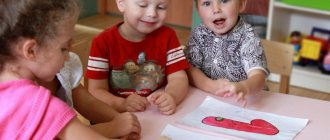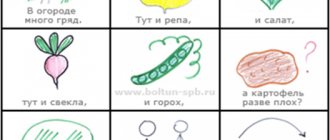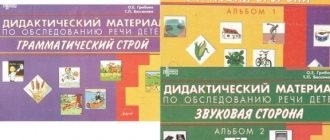MAGAZINE Preschooler.RF
Development of expressive speech through the use of various types of theatrical activitiesThe speech development of children is closely related to mental, moral, aesthetic development, and is a priority in language education and training of preschoolers. For the development of expressive speech, it is necessary to create conditions in which every child could convey his emotions, feelings, desires and views both in ordinary conversation and in public, without embarrassment to listeners. Theatrical activities provide great assistance in this, the educational possibilities of which can satisfy any interests and desires of the child. Children get acquainted with the world around them in all its diversity - through images, colors, sounds, music, and questions skillfully posed by the teacher encourage them to think, analyze, draw conclusions and generalizations. In the process of working on the expressiveness of characters’ remarks and their own statements, the child’s vocabulary is activated and the sound culture of speech is improved.
Correct determination of location on stage, dancing develops orientation, motor skills, and motor activity. When working with children in theatrical activities, special attention must be paid to interaction with the family. Parents provide assistance in making costumes and attributes. They purposefully visit theaters and museums together with their children, read works and watch videos recommended on the topic. This helps broaden one’s horizons, enriches the inner world, and most importantly, teaches family members mutual understanding, brings them closer, and is a means of developing general gaming skills, speech, the child’s personal qualities, and his adequate behavior in various situations. Theatrical play has a great influence on the child’s speech development, stimulates speech by expanding the vocabulary, and improves the articulatory apparatus. In theatrical play, dialogical, emotionally rich speech is formed. Children better understand the content of the work, logic and sequence of events. Theatrical activity promotes the assimilation of elements of verbal communication (facial expressions, gestures, posture, intonation, voice modulation). Theatrical activities include dramatization, plot sketches based on fairy tales, stories, and poems. With the help of theatrical activities, you can solve almost all problems of the speech development program. The mental state of some children does not always allow each child to fully realize their abilities; such children need special attention. First, children are read small texts, analyze the content, explain unclear words, discuss the actions of the characters, then divide the texts into episodes and retell the text (poems, songs, nursery rhymes, mini-scenes, fairy tales). The next stage of work is retelling by role. Children become participants in a small performance. Children were offered different types of theater based on the same work. During their work, teachers constantly monitor children’s speech – sound pronunciation, placement of words in sentences, pronunciation of case endings, and sequence of retelling. Children with disabilities must be given the opportunity to adapt, not be forced to participate in theatrical games, but invited, for example, to be given dolls to manipulate them freely. When working on the expressiveness of speech, it is very important to do articulatory gymnastics: 1. Brush your teeth, both upper and lower, with your tongue. 2.Close your eyes, imagine the night. We got on the horse and rode off. 3.Draw the sun with your eyes closed, etc. Since these exercises are carried out in a playful way, most children enjoy performing articulatory gymnastics. For the development of expressive speech, sketches that promote the creative development of children are very important. For example, the sketch “Loving Parents”: A lullaby sounds. Mommy bear and daddy bear are rocking their beloved son. First, the mother bear rocks the cub, gently hugging him to herself, and the father bear looks at mother and son with a kind smile and rocks himself too. Then mom hands her son over to dad. Expressive movements: fold your hands in front of you, clasping your fingers around the elbow of the other hand, swaying rhythmically to the music from right to left, with a smile on your face. Sketch “Grandma Got Sick.” It is very important to develop the hand motor skills necessary for free puppeteering. We offer the following exercises: 1. “Flag” (thumb extended upward, the rest are connected together) 2. “Birds” (thumb alternately connected with the rest) 3. “Nest” (join hands in the form of a bowl, fingers tightly clenched) 4. “Flowers” (the same, but separate the fingers) Speech development of children occurs in the process of individual work with children. This work helps in the future to take part in joint play, as the child feels more confident. At this time, we are noticing positive changes in the emotional development of children; interest in theatrical activities and independence have increased. When playing with children, we choose a calm, friendly tone, which helps to establish contact with the children, win them over, and make them feel self-confident. In any statement or part of it (sentence), the following components can be distinguished: logical stress, melody, tempo, rhythm, pause, timbre. It is very important to teach children to understand and correctly place logical stress in phrases. This is necessary in order to convey the meaning of your statements to other people more clearly and emotionally. One of the types of musical and playful creativity in theatrical activities - dramatization of songs - is very captivating for children. They quickly remember the words of all the characters, often improvise on their own, dressing up and acting out this or that scene. Children's speech becomes more expressive and literate. They begin to use new words, proverbs and sayings from the song repertoire, folk songs, jokes, and in everyday situations that coincide with their semantic content. The resulting positive emotional charge and acquired self-confidence increase children’s self-esteem. Children learn to think, analyze their behavior and the behavior of other people, and become more attentive and tolerant of each other. Their gaming activity intensifies, acquires a creative character and emotional intensity. Experience convinces us that the joint work of the music director and all teachers can lead to the desired result: it will solve many pedagogical problems related to the speech development of children. Together with teachers, I discuss certain problems in the speech development of children that arise in my work. Therefore, along with exercises to develop children’s musicality, I use a number of additional exercises that promote the development of phonemic hearing and attention, and the development of the vocal apparatus; rhythmic games with tasks for spatial orientation; exercises for distinguishing musical sounds by pitch, for adjusting voices to a specific musical sound; chants to automate the sounds that children learn in speech therapy classes. Effective interaction between teachers is the joint development and conduct of logorhythmic classes based on the connection between movement, music and words. For example, walking to different types of music: like wolves, like hedgehogs, like foxes. The children talked with the teacher about the characteristics of these animals, listened to music corresponding to the character of this character and independently performed movements with changing parts of the music. When talking with children about music, I activate in their dictionary such definitions as “music - calm, affectionate, sincere, inspired” or “music - perky, sparkling, joyful, playful.” By studying symphonic music, children become familiar with the sounds of various musical instruments and their names. For example, in rhythmic studies based on the musical fairy tale “Peter and the Wolf” by S. Prokofiev, children learned the names of musical instruments of a symphony orchestra - “flute”, “clarinet”, “oboe”, “bassoon”. Having difficulties with pronunciation, not all children can enrich their vocabulary with such complex words, but showing this musical instrument in an illustration, depicting it with the help of musical and playful creativity, using facial expressions, gestures, character and genre of music is not only possible, but also very interesting for children . Work on the development of speech in general, and on the development of intonation expressiveness in particular, is very difficult, but extremely necessary. And it’s easier and more interesting to carry it out, integrating it with theatrical activities. It is integration that allows the development of individual abilities and the formation of independent artistic and speech activity of children, the development of their creative abilities. Developing the creative abilities of children together with teachers, combining our efforts, we do not set the goal of making artists, performers or musicians out of them. But in their subsequent lives, the possibility of creative work will open before each of them. And it is very important that the child does not lose emotional responsiveness, admiration for beauty, and an aesthetic attitude towards the surrounding reality.
| Next > |
In modern preschool education, speech is considered as one of the basic principles of education and upbringing, because successful learning at school, the ability to communicate and general intellectual development depend on the degree of mastery of coherent speech. Unfortunately, today in most cases the degree of speech development of preschool children is below the norm.
Theatrical activities bring variety to the life of a child in kindergarten, gives him joy and is considered one of the most effective methods of influence, which more clearly expresses the principle of learning - to learn by playing.
During theatrical activities:
— children’s knowledge about the world around them becomes wider;
— mental processes develop: memory, perception, imagination;
- mental operations are stimulated;
- active vocabulary begins to improve, the grammatical structure of speech, sound pronunciation, coherent speech skills, intonation of speech, speed, and clarity of speech improve;
— motor skills, coordination, smoothness, switchability, and purposefulness of movements improve;
— the emotional-volitional sphere develops;
— a sense of collectivism and responsibility for each other develops;
- an incentive is created for the development of creative, search activity, and independence;
- participation in theatrical activities brings children a good mood, their active interest in this process grows, and captivates them.
All sections of the program, which include speech development, are closely related to the content of theatrical games, right up to primary school age. Theatrical games for children of senior preschool age influence the activation of various aspects of speech:
-dictionary;
-grammatical structure;
-dialogical and monologue speech;
-improving the sound aspect of speech.
Active speech development is also facilitated by independent theatrical activity, which contains not only the process of a child playing with dolls or characters, or one’s own actions according to roles, but also artistic and speech activity:
- selection of topics;
-providing familiar content;
-composition;
-performed on behalf of the characters.
The formation of expressive speech is considered one of the stages of speech development in theatrical activities. The expressiveness of speech is formed throughout the entire preschool age: from involuntary emotional speech in children to intonation speech in children of the middle group and to linguistic expressiveness of speech in children of older preschool age.
By creating conditions in which a child could express his emotions, feelings, aspirations, not only in a normal conversation, but also publicly, without being embarrassed by the presence of other listeners, the development of the expressive side of speech will grow rapidly. When teaching children the means of verbal expressiveness, it is necessary to use well-known and favorite fairy tales, which concentrate a whole range of expressive means of the Russian language and give the child the opportunity to naturally become familiar with the rich linguistic culture of the Russian people. It is staged fairy tales that can teach the use of various expressive means in their combination (speech, chanting, facial expressions, pantomime, movements).
Sample activity project: (activities included):
— musical and rhythmic warm-up;
- breathing and speech gymnastics;
— literary and artistic practical activity (coherent speech);
- games, a minute of pranks, a physical minute;
- theatrical activities.
The participation of older preschool children in theatrical games has a positive effect on the enrichment of active vocabulary and the development of speech abilities.
The use of theatrical activities in order to develop the expressiveness of speech, activate vocabulary, grammatical structure, dialogic and monologue speech and improve the sound side and social-emotional development of the child becomes possible if the following conditions are met:
-integrity of social, emotional and cognitive development;
- saturating this activity with interesting and emotionally significant content for children;
- gradual and consistent familiarization with a variety of verbal and non-verbal means of expression;
-the availability of interesting and effective methods and techniques for working with children;
-joint participation of children and adults in this process.
Children strive for the mysterious world of fairy tales. Since a fairy tale not only awakens fantasies, but also helps to create, enriches life with positive emotions, and unites people.



